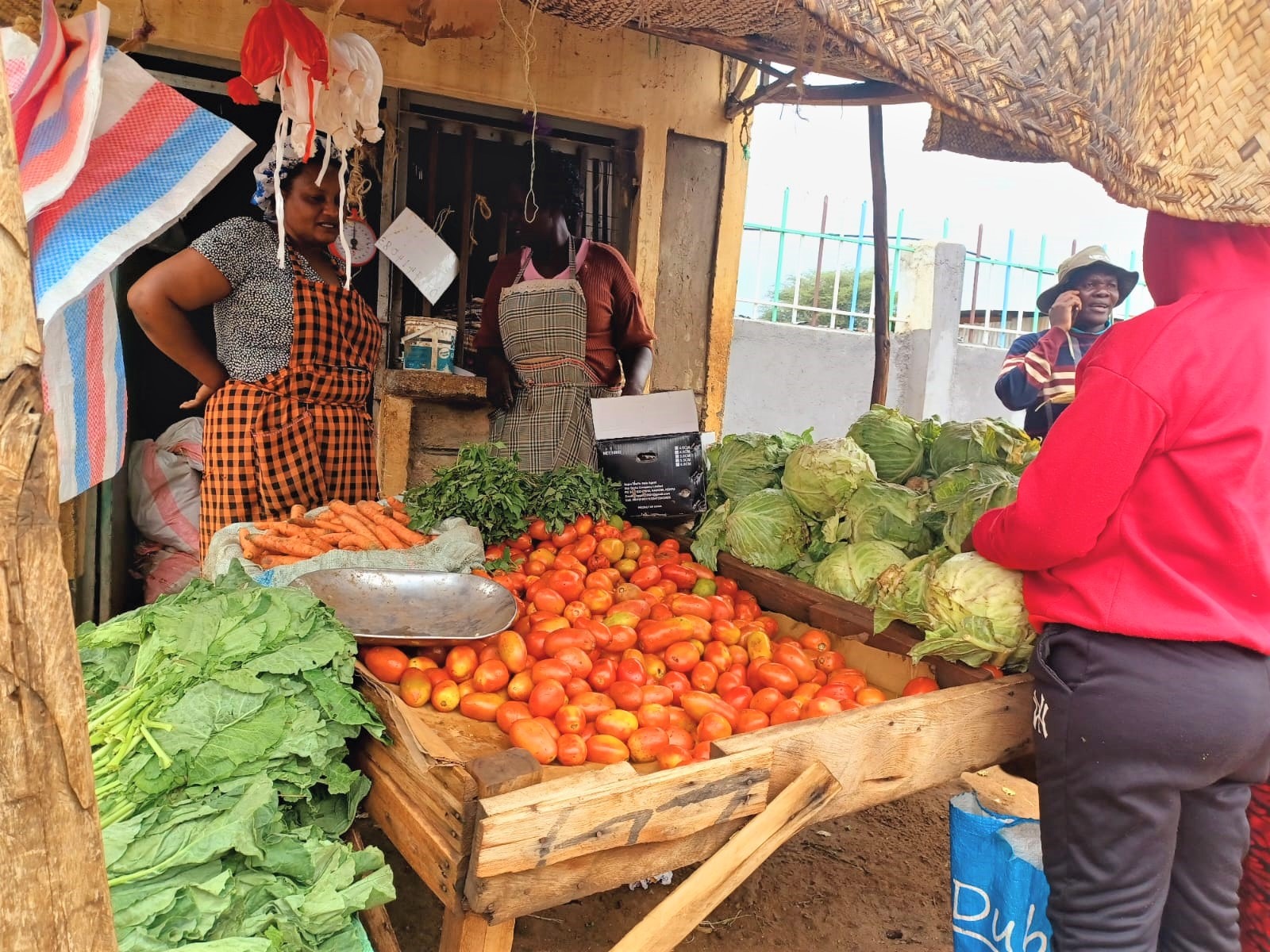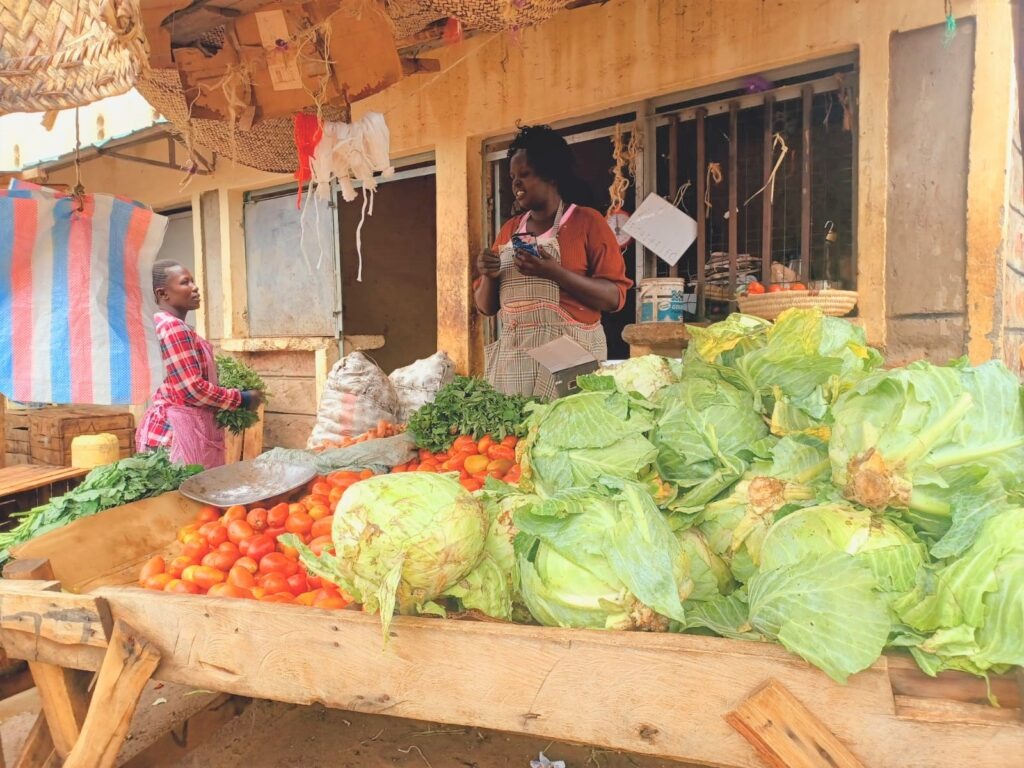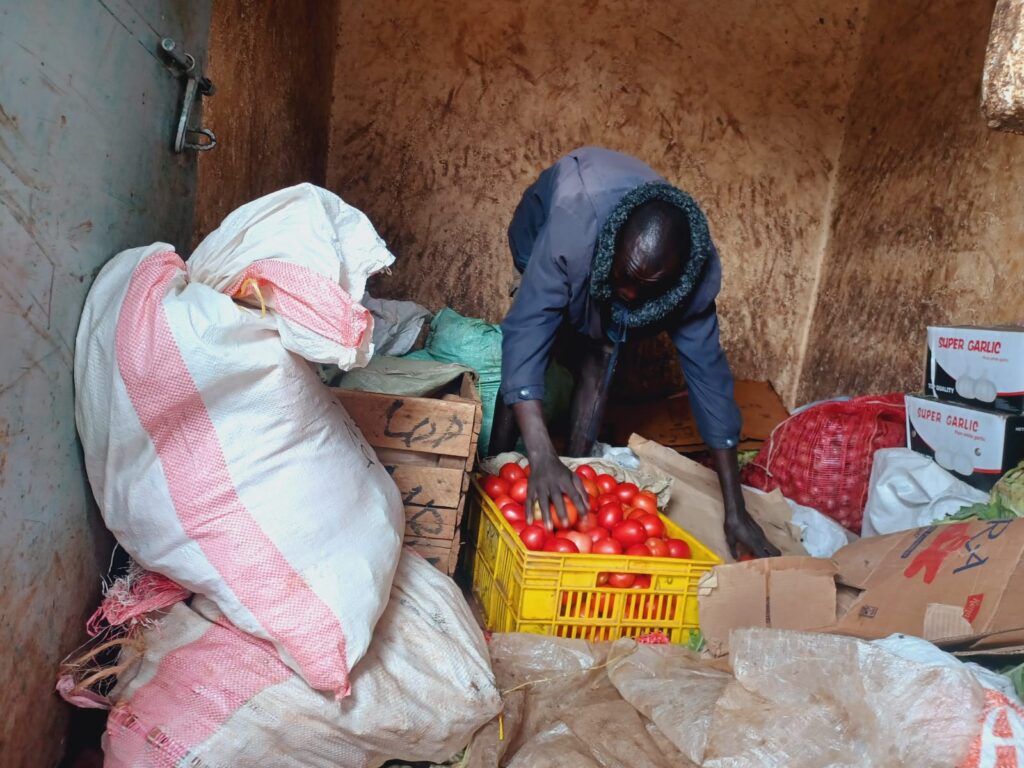
Lydia Majuma, a 33-year-old entrepreneur, established a wholesale greengrocery business in 2016 to supply fresh produce to retailers in Lodwar Township, Turkana County. However, an unprecedented drought from 2020 to early 2023, the war in Ukraine, and the post-COVID-19 recession led to food shortages and increased prices of food commodities and fuel costs, making it hard to run a business.
To mitigate the financial burden resulting from rising costs, Lydia made the difficult decision to stop selling potatoes, one of her primary products. Unfortunately, this change had a negative impact on her business, as potatoes were highly sought after and played a vital role in fulfilling the dietary requirements of the local villagers.
Lydia was also forced to lower her inventory of tomatoes by half due to a significant price increase. In December 2022, a crate of tomatoes was priced at $17 (KES 2,500), but by April 2023, the cost had surged to $25 (KES 3,500).

During a meeting convened by the Fresh Produce Market Management Committee in Turkana County, Lydia was informed about a cash transfer program offered by the United States Agency for International Development (USAID) through the Feed the Future Kenya Livestock Market Systems Activity (LMS), implemented by ACDI/VOCA. The program aimed to stimulate market operations and ensure that smallholder traders continue availing food commodities in the county despite the economic challenges. Lydia received valuable guidance on how to maximize the funds provided by the program to improve her business. Lydia met the eligibility criteria and LMS granted her $36 (KES 5,000) to support her business endeavors.
Empowered by the additional cash, Lydia returned to the potato trade. She utilized the MPESA mobile money transfer service to send a transport fee of $21 (KES 3,000) to her supplier in Kitale town, located 270 kilometers away. As a result, three bags of potatoes were promptly delivered to her. Additionally, she allocated the remaining $14 (KES 2,000) to purchase extra vegetables for her stock. To her pleasant surprise, the potatoes sold rapidly, resulting in sales of $75 (KES 10,500). Encouraged by this success, Lydia increased her potato stock to four bags. The cash grant proved to be an invaluable opportunity for Lydia to replenish a staple product and maximize the potential of her business. The reintroduction of potatoes and an enhanced range of stock led to a 27 percent increase in her daily sales.
“I appreciate the support from USAID. It has enabled traders to avail themselves of more goods to the market, which with time will also contribute to the reduction of prices to enable consumers and retailers to access goods at better prices. I hope that USAID continues to support us through the provision of the same grants.”
Lydia Majuma
Lydia’s steady income stream enables her to fulfill her personal needs and support her family. Looking ahead, she has plans to expand her business by incorporating cereals like rice and maize. By offering a wider range of products, she aims to provide her village community with broader and healthier food options.

Moreover, Lydia actively contributes to her local economy by creating employment opportunities for youth who assist her by carrying sacks of produce to her store, allowing them to earn a living and contribute to their financial well-being.
In May 2023, USAID’s LMS Activity, in collaboration with the County Government of Turkana, disbursed $41,295 to 450 traders in seven markets. In June, LMS disbursed a similar tranche to the traders. The cash transfers ranged from $100 to $500 per trader, depending on the trader’s value of the stock and operational level. The traders included livestock producers, vendors of cereals, vegetables, and pulses, butchers, and milk vendors.
To date, USAID provided support to 2,325 traders in six activity counties, namely Garissa, Isiolo, Marsabit, Samburu, Turkana, and Wajir. These traders received cash grants amounting to $185,065. Through the activity, traders like Lydia play a crucial role as agents of transformation, combating hunger, and malnutrition, while boosting their household income and the local economy.
Learn more about the Activity.
Learn more about our work in Kenya.







